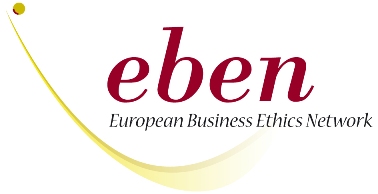Ethics and leadership in the Time of COVID-19
Thank you for inviting me to write a short article for the EBEN Spain Newsletter. Here I offer a few reflections on ethics, leadership, and the pandemic. As I write this, I sit in my apartment in New York City, the epicenter of the COVID-19 epidemic in the US. The streets are silent and almost empty. The few people outside walk quickly and avoid each other as if they were fugitives.
Lucky pedestrians wear masks, but most do not because they are almost impossible to get. Like Spain and other parts of the world, our medical workers in overflowing hospitals do not have enough protective equipment, and some of them have died. All of this has happened here in the course of a few weeks.
In times like this, leadership matters; however, not always in the ways that we might think. Ethical conflicts slowed the response of political leaders to the COVID-19 threat. In the US, some assumed that they had to make a utilitarian choice between the harm of an economic shutdown and the harm done by the virus. Other leaders struggled with the problem of restricting individual rights and enforcing travel restrictions. Then, there were a few leaders who thought the virus was a political hoax and did not want to do anything.
The president has been an obstacle to containing the virus quickly. As one commentator said, “there is no situation so bad that Donald Trump can’t make worse.” Trump’s faults are well documented: his tenuous relationship with the truth, his vindictiveness and disdain for experts, and his all-encompassing narcissism. It has been fascinating to watch how governors and scientists from the Center for Disease Control (CDC), have had to manage the president. Governors have taken to publicly flattering the him so that they can get the resources they need to save lives. Trump recently released a campaign video called “Hope” that includes clips of these governors praising him.[1] Almost daily, scientists from the CDC have had to correct the president or convince him to act on the facts. They have become skilled at delicately contradicting him and then publicly complimenting him on how well he understands the science. These are not the sort of problems leaders usually face in a pandemic.
This pandemic poses a test for democratic leadership. Polls in the US show that the majority of people have concluded that it is best to stay home, even if it hurts them economically.[2] This is how democracy is should work, by informing the public of the facts and trusting them to make decisions about themselves and the common good. In some cases, they know better than their leaders and in other cases they do not. Democratic leadership does not always produce the best results in a crisis, but it is better than autocratic leaders who use the crisis to take away rights and get more power for themselves.
There has been a varied response from business leaders to COVID-19. Some banks began planning on how to operate during the epidemic when it hit Wuhan. For them, their economic situation was inseparable from containing the virus. COVID-19 has been good for businesses like Amazon.com. Amazon raised workers pay a bit, but its warehouse and delivery workers complain that they are not being well-protected. These sorts of salary and safety issues during an epidemic, will be the source of future business ethics cases. I also hope that we will write about examples of how businesses helped, such as the liquor distiller that made hand sanitizers or Brooks Brothers who shifted production from making high end clothing to masks and protective garments.
Only a few months ago, this year’s business school graduates thought they were entering one of the best job markets in history.Now they may face one of the worst. If you are like me and faculty in many countries, you are teaching your classes on-line. I hope that you too seize this teachable moment and use it to inspire your students. Help them imagine new and better ways to build or run resilient, profitable business that can make a positive contribution to society in both good times and bad.
[1] Michelle Goldberg. “Trump to Governors: I’d Like You to Do Us a Favor Though.” New York Times, March 31, 2020.
Dr. Joanne B. Ciulla is Professor of Leadership Ethics and Academic Director of the Institute for Ethical Leadership at Rutgers University Business School (US). Prior to joining Rutgers, she was one of the founding faculty of the Jepson School of Leadership Studies (University of Richmond). She has had academic appointments at LaSalle University, Harvard Business School, The Wharton School and she held the UNESCO Chair in Leadership Studies at the United Nations International Leadership Academy in Jordan.

